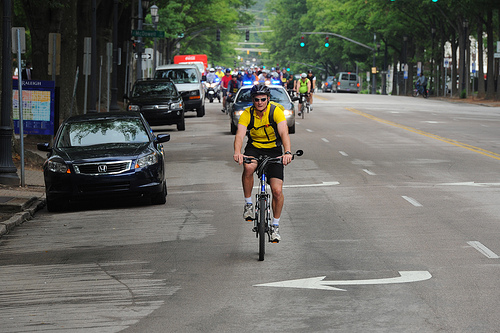Modest increases in bike ridership could yield major economic, health benefits
Modest increases in bike ridership could yield major economic, health benefits
Convincing Americans to ride their bikes instead of driving when traveling short distances during the warmest six months of the year could yield significant health and economic benefits, according to findings published today in Environmental Health Perspectives.

In the study, researchers at the University of Wisconsin-Madison examined the largest 11 metropolitan areas in the upper Midwest and calculated the effects on air pollution and health costs if short car trips, five miles or less round-trip, were replaced with bicycle trips. According to a university release:
The biggest health benefit was due to replacing half of the short trips with bicycle trips during the warmest six months of the year, saving about $3.8 billion per year from avoided mortality and reduced health care costs for conditions like obesity and heart disease.
[Additionally, the] report calculated that these measures would save an estimated $7 billion, including 1,100 lives each year from improved air quality and increased physical fitness.
Researchers say they hope the study serves as motivation for city planners to make communities more bike friendly and invest in separate paths or lanes for cyclists, storage racks and public transit.
###
Photo by NCDOTcommunications
* Stanford University Medical Center integrates research, medical education and patient care at its three institutions – Stanford University School of Medicine, Stanford Hospital & Clinics and Lucile Packard Children’s Hospital.
** The above story is adapted from materials provided by Stanford University School of Medicine & University of Wisconsin–Madison
________________________________________________________________




















